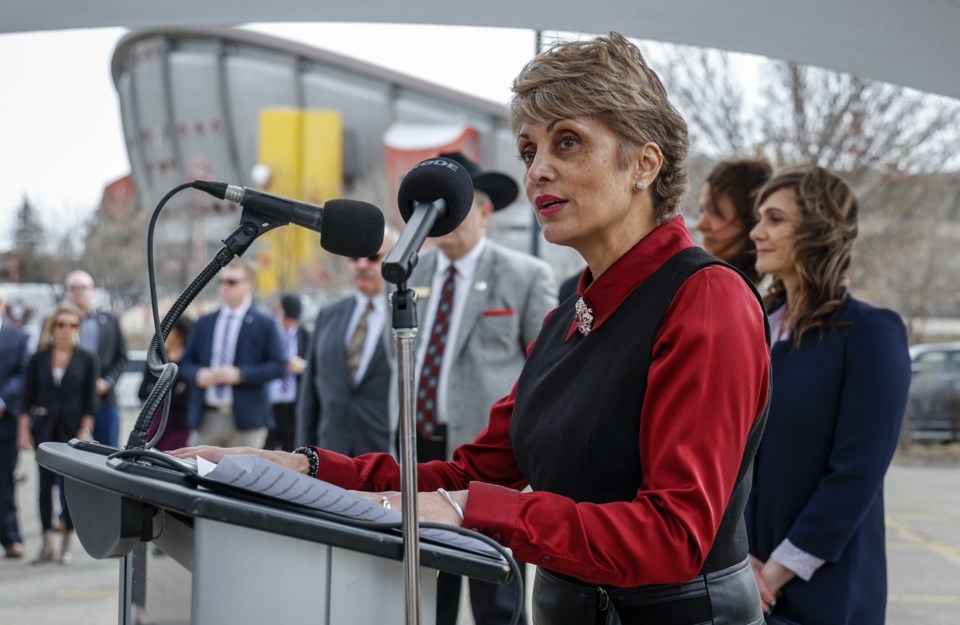CALGARY — Alberta's two big-city mayors say a separation referendum would be "devastating" to their local economies and is a needless distraction during a period in which the country should be focused on unity.
"It is very dangerous talk," Edmonton Mayor Amarjeet Sohi said in an interview with The Canadian Press. "It is dangerous talk for our economy. It's dangerous talk for our social cohesion. It's going to tear apart communities."
Discontent in Western Canada has picked up renewed traction with Prime Minister Mark Carney's Liberals winning a mandate in the recent election and a new bill from Premier Danielle Smith's government that would make it easier to bring citizen-led questions to a referendum.
The bill would lower the number of signatures needed for a citizen-led referendum on a constitutional question to 177,000 signatures from more than 600,000. It would also extend the time frame allowed for those signatures to be collected to 120 days from 90.
The Supreme Court of Canada has dictated that a province cannot unilaterally separate from the country. A vote to sever ties would send the province and federal government into negotiations over a litany of issues ranging from First Nation treaties to ownership of federal land such as national parks. While Smith has deferred to legal scholars on those questions, constitutional experts have said there is no road map for separation negotiations.
Critics have charged Smith with stoking the embers of separatism during a period in which Canada's relationship with its closest ally has frayed under U.S. President Donald Trump. Smith, meanwhile, has said the government has been targeting those changes for a long time because it felt the previous bar for signatures was impossibly high.
Earlier this week, Smith told CTV that she doesn't want to see the separatism movement splinter into a mainstream party like the Bloc Québécois or Parti Québécois in Quebec. "If there isn’t an outlet (for frustration) it creates a new party," she said.
Sohi, who unsuccessfully ran for the Liberals in the federal election and is not running for re-election in Edmonton this fall, said having a referendum on the question of separation would cause "full flight of investment from our communities."
"I am already hearing from business community members here in Edmonton that are deeply concerned about this question," Sohi said. "If there were to be a referendum, it will definitely cause full flight of investment from our communities."
Alberta Municipalities, Rural Municipalities of Alberta, and the Business Council of Alberta declined to comment.
Calgary Mayor Jyoti Gondek said in an interview that lowering the threshold to bring forward a referendum is a distraction during a time when Canada needs to strengthen its economy.
"It creates uncertainty. It creates lack of confidence from investors," Gondek said. "It's a dangerous game to play at a time that we should be looking out for ourselves."
She added that Calgary and other Alberta municipalities have butted heads with the province on many occasions, but they have never considered leaving. Calgary and the provincial government have sparred in recent years over numerous issues, including the fate of the billion-dollar Green Line transit project and a bill granting the province greater control over funding deals between the city and federal government.
"Municipalities in this province have been through a lot. We have been surprised by legislation that has stripped us of abilities to do our job. But not once have you seen a municipality say, 'I wish to remove myself from the province. I wish to be an independent entity.' We don't do that because we know it's not sustainable," Gondek said.
"So how on Earth can this province think it's a good idea to separate from the rest of Canada?"
This report by The Canadian Press was first published May 9, 2025.
Matthew Scace, The Canadian Press



